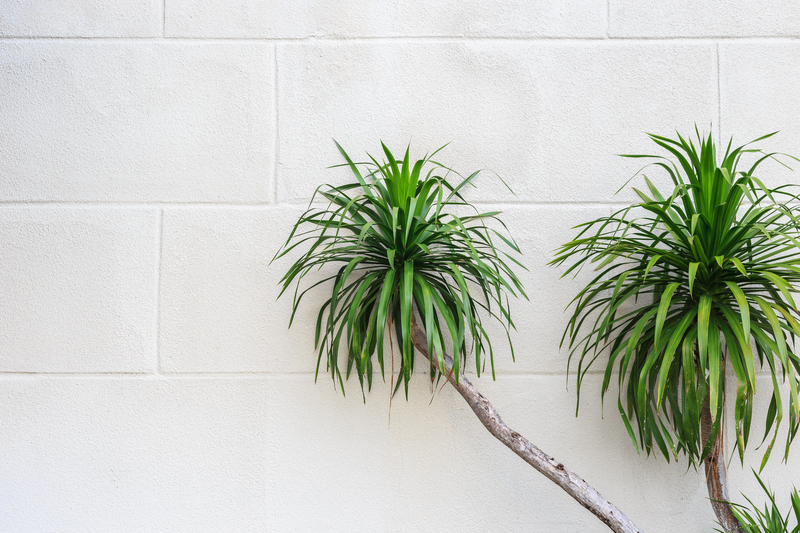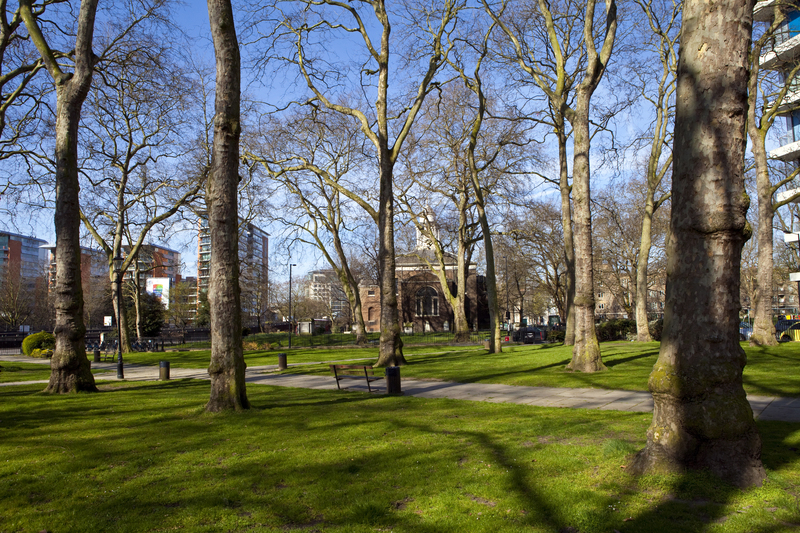Green Solutions for Garden Centers
Posted on 23/01/2025
In an era where environmental concerns are at the forefront of many consumers' minds, garden centers are uniquely positioned to be champions of sustainability. Garden centers that adopt green solutions not only contribute to preserving the environment but also resonate with an eco-conscious customer base, potentially increasing their market share. This article will delve into a range of sustainable practices, from energy-efficient infrastructure to sustainable plant sourcing and waste reduction.
The Importance of Sustainable Practices in Garden Centers
Sustainability in business is more than just a trend; it's a necessity. For garden centers, the transition to green solutions can significantly reduce their carbon footprint. By implementing environmentally friendly practices, these centers can serve as models within their communities, illustrating the real impact of sustainable living. More importantly, adopting green practices can result in cost savings, improve brand image, and enhance customer loyalty.

Energy Efficiency
Implementing energy-efficient strategies is one of the primary steps garden centers can take to promote sustainability.
Lighting and Heating
Switching to LED lights is an effective way to reduce energy consumption. LED lights use significantly less electricity than traditional incandescent bulbs and have a longer lifespan. They can be used both indoors and outdoors, ensuring that the entire garden center benefits from reduced energy costs.
For heating, consider installing solar panels. These panels can generate a substantial portion of required energy and, in some cases, can cover the entire energy need of the garden center. Additionally, many regions offer incentives and rebates for businesses that adopt solar energy, mitigating the initial costs.
Insulation
Proper insulation can greatly reduce the need for artificial heating and cooling. Garden centers, often featuring large indoor spaces, can significantly benefit from high-quality insulation in greenhouses, nurseries, and retail areas. This not only conserves energy but also maintains a more stable environment for plants and customers alike.
Water Conservation Techniques
Water is a precious resource, especially in the context of climate change and increasing water scarcity. Garden centers, large consumers of water, should prioritize water conservation.
Rainwater Harvesting
Collecting rainwater for irrigation is a straightforward and effective technique. Rain barrels and cisterns can capture and store rainwater, which can then be used to water plants. This not only reduces the consumption of municipal water but also helps in maintaining moisture levels in the soil, beneficial for plant health.
Drip Irrigation
Traditional watering methods often lead to a significant amount of water loss due to evaporation and runoff. Drip irrigation, on the other hand, delivers water directly to the roots of plants, minimizing waste and ensuring that plants receive the necessary amount of hydration.
Soil Moisture Sensors
These sensors can be placed in various parts of the garden center to monitor soil moisture levels in real-time. They can be connected to automated irrigation systems, which activate only when the soil dries beyond a set threshold. This method ensures optimal watering schedules, conserving water and promoting healthier plant growth.
Eco-Friendly Plant Sourcing
Consumers are increasingly interested in the origins of the products they purchase, including plants. Garden centers can meet this demand by sourcing plants in an environmentally responsible manner.
Native Plants
Native plants are adapted to local conditions and require less water and maintenance. By offering a wide range of native plants, garden centers can reduce the demand for resources and promote biodiversity. Additionally, these plants are more resistant to pests and diseases, reducing the need for chemical interventions.
Organic Growing Methods
Organic plants are grown without synthetic fertilizers and pesticides, which can have harmful effects on the environment. Sourcing plants from organic growers supports sustainable agriculture and assures customers that their purchases are eco-friendly.
Fair Trade Plants
Fair Trade certification ensures that plants are produced under fair labor conditions and environmentally sustainable practices. By offering Fair Trade plants, garden centers can support ethical suppliers and attract socially conscious consumers.
Waste Reduction and Management
Reducing waste is a critical component of any sustainability strategy. Garden centers can implement a variety of measures to cut down on waste generation.
Composting
Composting organic waste, such as plant trimmings, leaves, and expired plants, turns it into valuable compost for the garden center. Compost can be used to enrich soil, reducing the need for chemical fertilizers. Providing composting bins and educating customers on composting can further extend these benefits.
Recycling Programs
Implementing comprehensive recycling programs within garden centers can ensure that materials such as plastic pots, trays, and packaging do not end up in landfills. Partnering with local recycling facilities can facilitate the proper disposal and recycling of these items. Offering customers incentives to recycle can also boost participation.
Biodegradable Packaging
Switching to biodegradable or compostable packaging materials significantly reduces the environmental impact of products sold. Encourage suppliers to use sustainable materials and educate customers on the importance of reducing plastic waste.

Educational Initiatives and Community Engagement
Beyond implementing green solutions internally, garden centers have the opportunity to influence and educate their community about sustainable practices.
Workshops and Classes
Hosting workshops and classes on topics such as organic gardening, composting, water conservation, and sustainable landscaping can engage the community and promote eco-friendly practices. These educational initiatives not only position the garden center as a local leader in sustainability but also drive customer traffic and foster loyalty.
Community Gardens
Supporting or establishing community gardens can provide a platform for practical learning and community bonding. These gardens often rely on sustainable practices and can serve as demonstration sites for the benefits of eco-friendly gardening.
Partnerships with Local Organizations
Collaborating with local environmental groups, schools, and non-profits can amplify the impact of sustainability efforts. These partnerships can lead to joint educational programs, community clean-up events, and other initiatives that benefit both the environment and the community.
Conclusion
Garden centers have a crucial role to play in the movement towards a more sustainable future. By adopting green solutions, they not only reduce their environmental footprint but also set a positive example for the community. Energy-efficient practices, water conservation techniques, eco-friendly plant sourcing, waste reduction, and community engagement are all key components of a comprehensive sustainability strategy.
Implementing these practices can lead to long-term cost savings, compliance with increasing environmental regulations, and a strong, loyal customer base that values sustainability. As more consumers prioritize eco-friendly choices, garden centers that embrace green solutions will be well-positioned to thrive in the evolving marketplace.
Latest Posts
Creating a Serene Zen Garden Oasis
Perfect Mow Timing: How Often to Trim Your Lawn?



